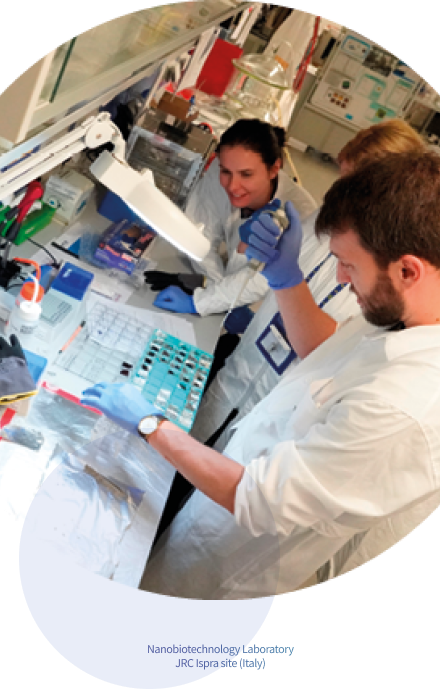Faced with an ageing population and a fluctuating socio-political landscape, Europe eeds effective public health policies more than ever. Together, we must meet challenges such as equitable access to heathy environments and healthcare with an all-of-society approach.
Coordinated efforts across Member States and sectors will ensure a Health Union built on prevention of diseases, diagnosis, treatment, and care. The European Commission (EC) and its science and knowledge service, the Joint Research Centre (JRC), actively collaborate with national authorities to protect people from health threats.
no entity is too big or too small to take action.When it comes to our health,
JRC scientists are developing strategies to address cancer, rare diseases, nutrition, and healthy ageing through healthier diets and lifestyles. In collaboration with regional, national and local stakeholders, our scientists monitor emerging public health threats and investigate environmental factors impacting health.
Established in 2020, the Knowledge Centre on Cancer provides independent evidence-based information to support EU cancer initiatives that enhance prevention, detection, treatment, and care.
JRC is providing Guidelines and a European Quality Assurance Scheme for breast, prostate, colorectal, cervical, lung and gastric cancer services. These evidence-based, patient-centric schemes are designed to ensure screening, diagnosis, treatment and care for those cancer sites across Europe meet essential quality standards. Implementation of these schemes will raise the bar of cancer healthcare in the EU thereby reducing its burden and inequalities across Member States and Regions.
The European Cancer Information System (ECIS) provides up-to-date data on cancer indicators across Europe, enabling the analysis of trends in incidence, mortality, and survival. This comprehensive tool supports research and public health decision-making in the field of cancer and informs European citizens. Stakeholders can use this data to improve cancer prevention, diagnosis, and treatment policies, enhancing public health strategies across Europe.



At the forefront of research and development, JRC partnered with HERA (Health Emergency Preparedness and Response) to publish a study on promising technologies for tackling airborne respiratory infections. Gathering insights from over 50 experts, the study highlights emerging technologies for capturing airborne germs and decontaminating air to improve indoor air quality and reduce pathogen transmission: Plasma-based inactivation, aerosol samplers, biosensors, and physico-chemical property identification hold great promise for pathogen management.
It also heralds crucial advancements like rapid PCR testing, next-generation sequencing for tracking pathogen evolution, the development of universal vaccines targeting multiple viruses and the use of AI for early outbreak detection and management.

Around 30 million EU citizens suffer from over 6,000 rare diseases, but patient information is scattered across registries. The EU Rare Disease Platform consolidates this data into a comprehensive tool and offers training for researchers, healthcare providers, patients, and policymakers.
By making data searchable and findable at EU level it supports and standardizes all rare disease registries, co-creating a valuable knowledge generation hub that can improve our understanding, diagnosis, and treatment of rare disease patients across Europe.